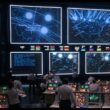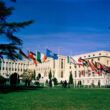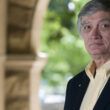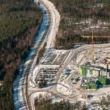A long way to Tokyo
By Akira Kawasaki, September 10, 2015
In the second round, Mustafa Kibaroglu argued that Japan's stockpile of plutonium undermines the disarmament message of the Hibakusha. Suvrat Raju focused on Washington's continuing readiness to use nuclear weapons—an issue that directly bears on Japan because of the nuclear umbrella that Washington extends to Tokyo. Both my colleagues' essays, albeit in different ways, shine a light on the double standards inherent in Japan's nuclear policies.
In Japan, both policy makers and ordinary people have trouble recognizing the country's deep nuclear contradictions. Japanese prime ministers have asserted for years that abolishing nuclear weapons is among the country's utmost priorities, and Tokyo has regularly submitted resolutions to that effect at the United Nations. Thus among the Japanese public there is a widespread perception that Tokyo plays a leading role in disarmament. But the perception isn't quite accurate.
Decades after the Cold War's end, Japan remains bound to a Cold War concept of nuclear deterrence. In 2012, when Switzerland and 15 other nations released a statement regarding the humanitarian consequences of nuclear weapons, Japan initially refused to sign on because of the statement's call to "outlaw" nuclear weapons. When Tokyo eventually reversed course, it did so only because of public criticism—and emphasized that it would not support a ban on nuclear weapons in the near term. Nor has Japan yet associated itself with the Humanitarian Pledge, a growing initiative that calls for "fill[ing] the legal gap" toward the prohibition and elimination of nuclear weapons.
Tokyo has sometimes resisted even partial steps toward disarmament. When Washington was conducting the Nuclear Posture Review that was completed in 2010, a "sole purpose" strategy came under consideration. Such a strategy would have defined nuclear weapons' only purpose as deterring a nuclear attack against the United States or its allies. After an internal debate, the Japanese government opposed the change over fears it would fray the nuclear umbrella.
Then in 2013, at Nagasaki University, Foreign Minister Fumio Kishida presented his "comprehensive thoughts on Japan's overall nuclear disarmament and nonproliferation policy." He proudly reported that Japan would call on nuclear weapon states to limit their use of nuclear weapons to "extreme circumstances based on the right of individual or collective self-defense." The Nagasaki survivors in attendance were shocked, wondering how Japan could condone the use of nuclear weapons even in self-defense.
Kishida's remarks created a scandal in Nagasaki and in Hiroshima. But little attention was paid to Japan's official reliance on US nuclear deterrence—or to the Japanese government's request, in the early stages of the six-party talks over North Korea, that Washington not pursue northern denuclearization by ruling out the use of nuclear weapons against Pyongyang. How can a nation lead the world toward disarmament when it envisions the possibility of Washington launching a nuclear strike on its behalf?
Just as Japan's disarmament policies are riddled with contradiction, so it is with nonproliferation. In Japan the view is widespread that the country's nuclear power plants are purely for peaceful purposes and bear no relation to weapons. Scholars, backed up by government and industry, authoritatively claim that Japan's plutonium cannot be used for weapons because it is only "reactor grade." The Japanese public generally doesn't understand that plutonium poses a serious proliferation risk no matter what form it takes.
Kibaroglu suggests that Japan address its plutonium problem by using plutonium-uranium mixed oxide fuel in power reactors. But I believe that consolidating the plutonium stockpile, and storing it under strict controls, would be a much safer approach. It would also, considering Japan's decreased dependence on nuclear power in the post-Fukushima era, be more realistic. As for the spent fuel that power reactors produce, on-site dry storage would be much preferable to reprocessing in both safety and nonproliferation terms. In any event, beginning full operations at the Rokkasho reprocessing plant (currently scheduled for 2016) would send a terrible signal regarding global weapons proliferation.
The survivors of the Hiroshima and Nagasaki bombings often struggle to communicate their message to overseas capitals such as Washington, Moscow, and Pyongyang. Hiroshima and Nagasaki lie just a train ride from Tokyo—but sometimes a vast distance seems to separate the Hibakusha from their own nation's capital city.
Topics: Nuclear Energy, Nuclear Weapons
Share: [addthis tool="addthis_inline_share_toolbox"]














